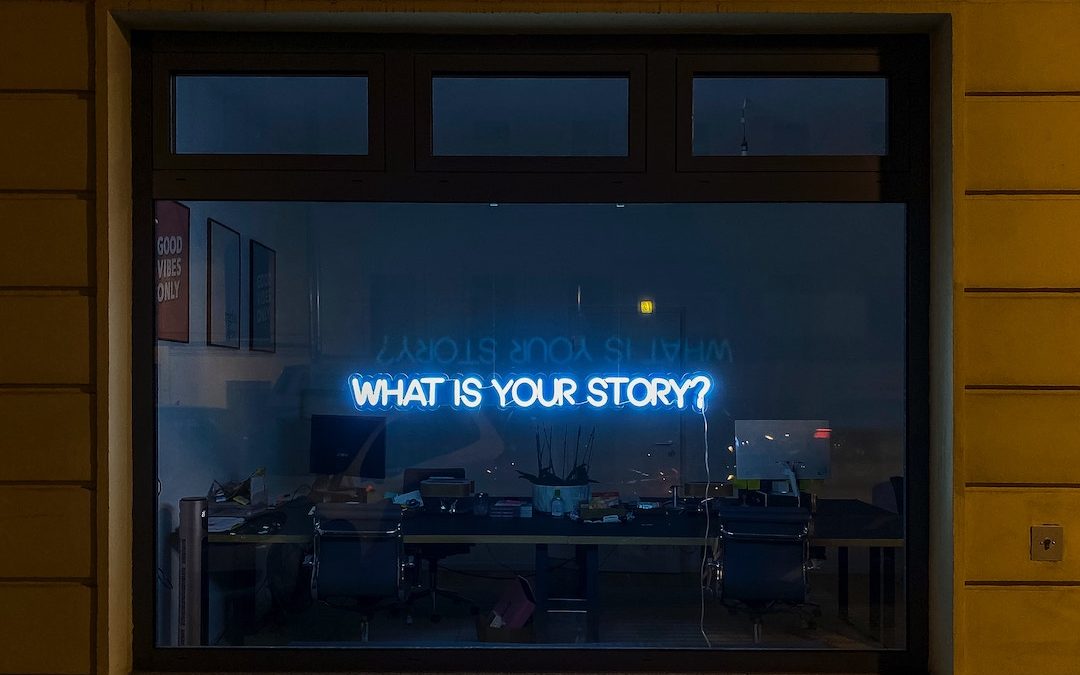
by Rachel Toalson | This Writer Life
Part of collecting ideas includes not just searching outside yourself but also searching inside.
I suppose this could also be a step in the process of developing ideas.
We all have unique experiences and backgrounds that have shaped us into unique people. Why wouldn’t we delve into that history to pull out some ideas for stories and content? Writers are, after all, told to write what we know. So our lives and memories are a treasure trove of ideas.
Here’s how we can unlock and open up that treasure trove.
1. Start by remembering.
I acknowledge that some events in our pasts might be unexplored indefinitely (and intentionally) because they cause us pain and heartache. It’s okay to figuratively block those off until you’re ready to approach them—if ever you are.
But we also likely have all kinds of memories that aren’t painful—disappointing, maybe, or a little bit scary or really, really happy—whether those memories are things we did with other people, learning experiences, trips and vacations, big events like graduations and sports games and band concerts or competitions. Start with these. Think about the things you remember. Are there any memories that contain the seed of a story idea, something you could build a character around or a place you went once upon a time that would make a perfect setting for a murder mystery or a romantic meet cute or a creepy location for a horror scene?
Memories hold all kinds of potential for story ideas. I’d suggest making a list of the big ones and seeing if that opens up some of the smaller ones—and then mining them in turn for any kind of creative writing you might do.
2. Consider the things that are most important to you.
Make a list of the things you care about. Family, maintaining healthy friendships, kids owning their power and remembering they’re magnificent. Environmentalism. Integrity and honesty. Writing. Running. Being fit in general. Music. Books. Gender equality. Equality in general. Climate change. Social justice. Homelessness. There are so many more things I care deeply about. I’m sure there are many things you care deeply about, too.
How can these places of deep care help you come up with story ideas? Well, they could be themes. Or characters who have expertise in one of your areas of interest (because it’s fun learning more about the things we care about!). Or they could frame a whole story.
I’ve written books about musicians, kid environmentalists, runners (lots of these), characters who are writers and journalists, books focused around media literacy and gender equality. When we care deeply about something, it’s worthwhile to put it in a story or composition—because the care comes through onto the page. And sometimes it’s contagious.
3. Collect your daily life in journals.
I know. Here I go again, talking about journaling. You might be tired of hearing me try to convince you to journal, but this is yet another reason to do it—you can get writing ideas from it!
When I was writing for Huff Post and Babble, I often used journal entries as a springboard for my humorous parenting essays—because those early parenting years I collected all kinds of funny, maddening, overwhelming, joyous moments in my journals. It made coming up with new essay ideas practically simple.
These days I’ve used my journal entries for essays, fiction, memoir, and even poetry ideas—in fact, when I find myself bereft of ideas, I’ll pick a journal at random from my shelf and start reading at the beginning or in the middle. Some seasons I’ve been so obsessed with quality of sleep that I’m developing a humorous character who stresses endlessly about sleep.
Give it a try. You might be surprised how many ideas follow just putting a pen to the page.
I hope these tips have been helpful for you; I’d love to know how you use yourself or your experiences to generate writing ideas.
Have a fantastic month of generating ideas and writing!

by Rachel Toalson | This Writer Life
Ideas are all around us.
The problem is, sometimes we’re so focused on other things, our eyes fixed on just about everything else, that we miss them.
When I visit schools or I do author panels or interviews, I’m frequently asked where I get my ideas. My answer is usually, “Everywhere.”
Sometimes I’m reading an article in the paper or the latest National Geographic, and an idea knocks on my brain. Sometimes I’m out for a walk, clearing my mind, and suddenly ideas flood me. Sometimes one of my kids makes an observations or says something funny or offers up the magic words, “What if…”
So many ideas come from the words “what if.”
I keep an idea journal ever at the ready, because I can never predict when the next idea will announce itself. Sometimes it’s a book idea, sometimes it’s a marketing strategy, sometimes it’s a way to get my 16-year-old out of bed in the morning. All the ideas go into this journal (which means it’s a bit of mess), no matter how outrageous or seemingly impossible.
It seems silly to say, but I think ideas like being captured and collected. They multiply when they know they have an open mind to land in.
If you have trouble coming up with writing ideas, whether it’s for books or essays or poems or whatever you may be writing, here are some suggestions that might help generate some.
1. Read!
I know this one’s pretty obvious. Most writers know that the more they read, the better writer they’ll be. But I will add something to the advice:
Read widely.
It doesn’t matter if you write kids books or romance or mysteries or nonfiction—read them all. Most of the advice we get as writers is “read in your genre.” But as an eclectic reader who picks up middle grade literary books, young adult fantasies, adult historical fiction, poetry books, biographies about Sylvia Plath and Mark Twain, memoirs, National Geographic, Psychology Today, the local newspaper (really, I read all over the place), I’ve found that the richest ideas come from the most unlikely and unexpected places. Our brains are amazing at stitching together new ideas if we give them all the threads.
2. Take a walk.
This comes with a catch: Don’t take any distractions with you.
Some of my most exciting ideas have come to me when I’ve been out on a walk or run in my neighborhood. For my walks I leave my phone at home. For the runs where I want to generate ideas or think something through, I listen to music. There’s something magical about moving the body while out in nature that stimulates the brain and gets ideas flowing.
If you’re afraid of losing the ideas that may come to you on those walks or runs, take a notepad with you.
3. Cultivate your relationships.
It seems a strange way to generate ideas, but we all have people in our lives with whom we come in contact on a regular basis. And sometimes all it takes is tuning in and listening to the people around us to come up with ideas. I was washing dishes one night during my family’s after-dinner chore time when I turned around to throw away a tea bag and nearly collided with my second son, who was supposed to be sweeping the floor. He was, instead, dancing with a broom and throwing out new I wonders for our “I Wonder Wall.” One of them was, “I wonder what it would be like to live in a home without a roof.”
I now have a middle grade book called The Home Without a Roof, based on my research about and my work with the homeless here in my city.
Of course these aren’t the only ways to generate ideas; there are many more (listening in on conversations, anyone?). But what they all have in common is the importance of keeping your eyes and ears wide open. You never know what brilliant ideas await you just around the corner. Make sure you’re paying attention.
I hope you have a wondrous month full of new and exciting ideas.

by Rachel Toalson | This Writer Life
One of the most frequent questions I get from young writers and even seasoned writers is: How many drafts do you need to write a story?
I have a super helpful answer:
It depends.
Let me explain. Some of my books only took four or so drafts. (Even saying “only four” will probably freak some people out—you have to really love and care about a book to read it four times!) Some have taken seven or eight. A couple have taken more than ten.
Really, it depends on the story.
My book that publishes May 30 (The First Magnificent Summer) took so many drafts I never thought I’d be finished with it. The first draft I wrote in prose. The second draft I turned into poetry. Third draft back to prose, fourth draft poetry, with a little humor, fifth draft back to prose with some more humor, sixth draft diary entries with more humor. This format stuck for the next three drafts.
Yes, three. It turns out humor is really difficult to get right, if you’re as picky as I am about humor.
For the seventh draft, I layered in more humor. In the eighth draft I added some poetic asides; in the ninth draft I rearranged some things, cut the first five thousand words, and meticulously examined the humor to avoid cliches and old tired metaphors. In the tenth draft I tightened up pacing, shortened most of the journal entries (adding more in one day if they felt too long) and added more humorous asides.
Finally, on the eleventh draft, I focused on language, word choice, and typos. And this is before the manuscript even sold to an editor!
Writing is a lot.
Compare all of that, however, to the book’s sequel (The Second Magnificent Summer, which will publish in summer 2024). I brainstormed, wrote a first draft, a second draft to tighten pacing and layer in more humor, and then it was off to my editor.
Part of this is that some stories are easier to tell than others (sequels and subsequent books can be easier because you’ve already spent so much time with the characters and know them so well). Another part of it is the more we write, the better we get at it (although this doesn’t always translate to fewer drafts, especially when getting better at what we do also means getting better at recognizing the flaws in our manuscripts).
So how do we know how many drafts a story needs, if it depends?
The answer to that is we have to get really honest with ourselves about the state of our manuscript.
As writers, we generally know when something is finished and when it’s not quite there. Sometimes it’s a little tricky to determine, but there’s usually a sense of unease in our gut if there’s still work to be done on a book or composition.
But here are some more practical ways to know if your writing composition needs more drafts.
1. It’s a first draft.
I know this seems like an obvious statement, but many of the young writers I meet wonder if a first draft, in some cases, can be the draft. And I don’t like speaking in absolutes, but I have strong feelings about this. I don’t personally think anybody can write their best book (or their best anything, really) in one draft—even those seasoned writers who claim they write their books in one draft. Nothing comes out perfectly the first time. Our first drafts are places to explore our stories and characters. Our second, third, fourth (okay, it can just be a second if you’re going to fight me on this) drafts are the places where we analyze, tighten, and perfect everything.
2. There are still places where you’re shaky on details.
These details could be plot points or character personalities or even the beginnings and endings of chapters. Reaching the end of a book you’ve written should leave you with a solid grasp of your plot, your characters, your structure, your word choice, your title, your settings, etc. If there’s any question in your mind (Does her sarcasm come through? Did I end chapter three in a place where people would want to read more? Does his motivation make sense in light of his actions? Have I said what needs saying in an understandable way?) it could be worthwhile to give it another draft.
3. You have an unshakeable feeling that something’s not quite right.
This is, honestly, one of my least favorite ways to figure out a story needs another draft—because many times it’s something you, as a writer, just can’t put your finger on. You just know there’s something. That the book needs more drafts. This is where it’s helpful to engage other readers—writer friends, or if you’re fortunate enough to have one, an agent who doesn’t mind reading a draft. Sometimes the perspective of another trusted person can lead you to the exact solution the next draft needs to get your story (or whatever you’re writing) in publishable shape.
I hope some of these suggestions are helpful to you. I’d love to know some ways you know when a draft is finished.
I’ll leave you with two very important questions I ask myself anytime I write something—whether it’s a piece of marketing content, a newsletter, a short story, a poem, or a 65,000-word novel:
What do I want to say?
Have I said it?
Have a fantastic month of writing and revising!

by Rachel Toalson | This Writer Life
My first book, a middle grade novel in verse, was written in tiny fifteen- or twenty-minute windows, back when my kids were very young. I had a newborn, two 3-year-olds (twins—so double trouble), a 5-year-old, a 6-year-old, an 8-year-old, and not a lot of time—obviously.
But I had a story that needed to get out, so I did what I could to jot it down between bedtime and the next newborn feeding.
When I shared this information at the book launch party for that book (The Colors of the Rain, which published in 2018), someone asked, “How do you keep a plot line going in only fifteen minutes a day?”
It’s a good question, and one that I think is probably on the minds (or in the Secret Fears Box in the brain) of many authors who don’t have hours at their disposal to write on their works in progress. Or those of us who take a while to write our books. We don’t want to rush stories. They need time and space to grow and develop.
But how do you give them the time and space they need without losing sight of where you’re going?
I’m in a different place now. I have more time to write. But there are still times when I’ve had to put aside a manuscript for weeks or even months, because of deadlines that come calling. And in a collaboration I’m working on with another author, sometimes I don’t write a chapter with my character for weeks.
How do you keep a plot line going? How do you remember who your character is? How do you make the most of the time you have, without needing to re-read everything you’ve previously written on the project?
That first book I mentioned was written, as we say in the writing world, by the seat of my pants. That means I did no brainstorming (what others call plotting). I just started writing—and the story required a LOT of revision!
Now I brainstorm (or plot) every story. It’s much easier to hold a storyline in your head for those fifteen minutes of daily writing time if you know the story already. Or if you at least have a vague path for where it’s going.
So that’s my first tip. I know it will make some writers cringe, but…
1. Brainstorm your story.
This can be whatever you make it. It can be an in-depth main character analysis followed by in depth character analyses on every other character in the book, followed by a detailed look at the setting, followed by detailed plotting. Or you can make a Pinterest board and call it your brainstorm (it’s actually surprising how well a Pinterest board satisfies the imagination and keeps a story at the top of mind).
Draw maps. Make calendars. Create whatever materials you might need to help you get right back into the story the next time you pick it up.
The more time you have to spend remembering what and who your story is about, the less time you’ll have to actually write it. And when you’re crunched for time, every minute counts!
2. Leave notes on where the next scene will go.
When I’m working on the first draft of a story, I will generally only write one chapter a day on the project, because I enjoy giving it space and some time to breathe. But this is a little trick I use in all my first drafts: After I’ve written that one chapter, I make notes on where the next chapter will start and where it will likely go. Sometimes I even write the first line of the chapter.
But what either of those things does is they propel me right back into the story the next time I pick it up. The brain is amazing; when we give it an open loop (like some notes about the next chapter), it happily plays without our even noticing.
3. Know your character.
I write character-driven fiction—but even if you don’t, knowing your character (or characters) is important for maintaining a storyline for however long it takes you to write a story. And knowing your character will, of course, make your story better.
Fill out character sheets, or make cheat sheets for quick reference, or keep a picture of him/her/them right by your computer. (Though your kids might thinks it’s weird. “Who’s that?” they might say. “A character I’m writing,” you might say. “Why do you have a picture of them and not me by your computer?” they might say. Hypothetically.)
The more you know your character, the more you know your plot, and the more you know your plot, the faster you can dive right back into a project that’s been left on the back burner for a while.
I hope these tips are helpful to you. I’d love to know any you might have for maintaining a storyline over the months and years it takes to write a book!

by Rachel Toalson | This Writer Life, Writing tips
At any given time, I’m working on between three and five manuscripts.
Some people’s jaws drop when they hear a thing like that (probably because the average person can hardly imagine working on one manuscript!).
Maybe it’s a leftover consequence of my decade in journalism, when I was balancing feature stories, in-depth investigative series, and the daily news articles that popped up unexpectedly. Or maybe it began even before that. For as long as I remember I’ve had lots of plates to juggle.
In middle school I played every sport imaginable, worked hard to get all As, played the clarinet, and wrote stories on the side. In high school I added to that class president, a boyfriend, and a part-time job. In college I had all of that (minus the boyfriend—I was more focused on education) plus another part-time job (two total—which still didn’t pay like a full-time job), a minimum of four writing-intensive classes per semester, and a band I sang and played guitar in.
I’m a busybody. I like to stay active. My brain works best when it has more than one thing to focus on. Otherwise it can get very anxious and obsessive.
Not everyone works this way. So the first thing I want you to know is that your process is your process. If you don’t enjoy juggling multiple projects at one time, that’s okay. Or if you’ve tried it before and it just doesn’t work for you, that’s okay, too. We are all different people with different brains, and one person’s way doesn’t make another person’s way wrong.
But I do have some tips that have been helpful for me, if you’d like to try (or try again) balancing multiple projects.
1. Make sure they’re different.
When I pick up new projects to write, I try my best to make sure they’re different genres, different age groups, or different narrators from the projects I’m already working on. For example, right now I’m working on two young adult literary books from a female perspective, a middle grade realistic fantasy book from a female perspective, a middle grade horror book from a male perspective, and a young adult biography in verse from a female perspective.
Why am I working on two young adult literary novels at once? Because one is a first draft and the other is a much later draft. One has a female voice that is angry and sarcastic; the other has a female voice that is curious and exploratory. They are in different stages, and they’re different people.
The pitfall we have to look out for when balancing multiple projects is making sure the narrator’s voice or the narrative voice of the story doesn’t sound the same in both. So we have to make sure we know our characters and/or the tone or voice we’re trying to capture in the story.
2. Don’t sacrifice one for the other.
What I mean by this is don’t move on to project #2 just because it’s the new and shiny idea. Writers are notorious for hitting a wall in project #1 and picking up a new project because it’s new and exciting—but never finishing project #1. So if you pick up a new project, make sure you also have plans to finish your first project. It deserves at least that.
It is, of course, perfectly fine to spend more time or an unequal amount of time on project #2, because it’s shiny and new and feels easy—at least much easier than the old project. This could be part of your process and strategy: spending 70 percent of your time on the new project and 30 percent on the old, until the old is done. Because eventually project #2 will get old, and you’ll need to pick up another project to spend 70 percent of your time on.
Do what works for you. Just don’t abandon a story that deserves to be told.
3. Let your brain lead the way.
The subconscious mind does a lot of work behind the scenes, without our even realizing it. That’s why I love balancing multiple projects. It allows my brain to play with a lot of different possibilities. Many times, when I’m writing on project #1, I’ll have a major breakthrough for project #2, and vice versa. The creative brain is a mysterious thing. Inspiration comes at the most unexpected of times.
That said, make sure you have a means of capturing these breakthroughs and little ideas the brain sends. I keep all mine in an idea journal, to revisit later, when I need them.
You may try balancing multiple projects and it absolutely doesn’t work for you—and that’s okay! Keep writing the way that works for you.
Or you may try it and think it’s the best thing ever.
To which I say: Welcome to the club.
Have a fantastic month of creating.

by Rachel Toalson | This Writer Life
As much as we like to think we have everything under our control (or maybe that’s just me), there’s a lot that’s out of our control, especially when it comes to writing.
Sometimes kids get sick and writing time disappears. Sometimes there’s a freak snowstorm in Texas and the power’s out for three days and you can hardly think about anything except the blanket barely keeping you and your kids warm. Sometimes you’re tired because you haven’t been sleeping well.
Add to that the uncertainty of the writing industry. You can’t just make a goal to get an agent this year when so much depends on someone else’s subjective judgment of your book. You can’t make a goal to sell a book to a publisher when first you have to get your agent to read the manuscript (or get an agent in the first place) and then you have to wait for the right editor to fall in love with it. You can’t just say, “I’ll write X number of books,” because sick kids, winter storm, and exhaustion!
What’s a writer to do?
Here are my suggestion for setting reachable goals even when so much lies out of your control.
1. Focus on improvement goals.
While we may not always be able to set and keep word-count goals or goals to write a certain number of books (don’t get me wrong: I still try), we can make it a goal to continue improving in our craft.
Maybe that means we attend one more writing craft conference than we did last year. Maybe we take a class on writing short fiction so we can improve our long fiction. Maybe we challenge ourselves to write a story in a completely different genre so we’re continuously evolving (I did this last year—I wrote a young adult romance and discovered I loved writing them).
Improvement is always within our control.
2. Progress goals
While we might not want to name a specific number of manuscripts we want to finish or a total word count we want by the end of the year, we can make progress goals. They can be vague (like “make some progress on the YA fantasy”) or very specific (like “write three chapters on the adult thriller this week”). They can even just be something like “commit to writing every day from 10 a.m. until 11:30 a.m.” (I know that’s wonderfully specific; it’s the time I write with my online writing group, so it’s an actual commitment I’ve made.) It can even look like improving specific skills, like character development or plotting or the musicality of language.
All of that is progress. And the good news is, we control our progress.
3. Network goals.
In the daily work of writing and revising, I often forget how much control I have over networking. We network in many different ways—through social media and in person at conferences and local writing organization meetings. But if you’re like me, you might feel a little inhibited meeting new writers. I often hear those negative voices that say, She’s a big-time author. Why would she want to talk to you?
But authors are regular people, too. Don’t forget that (I’m reminding myself, too). So the next time you or I second-guess ourselves when meeting and networking with a new author, I want us to remember it never hurts to introduce ourselves.
I can tell you countless stories of times I saw another, seemingly more successful author and I thought, “I’m a no-name. Why would she talk to me?”—but I introduced myself anyway, and we’re good friends to this day. Most authors are generous, friendly people. Give yourself a chance to discover that.
I hope your new year is off to a fantastic start. I’d love to hear some of your writing goals if you’d like to share them.







